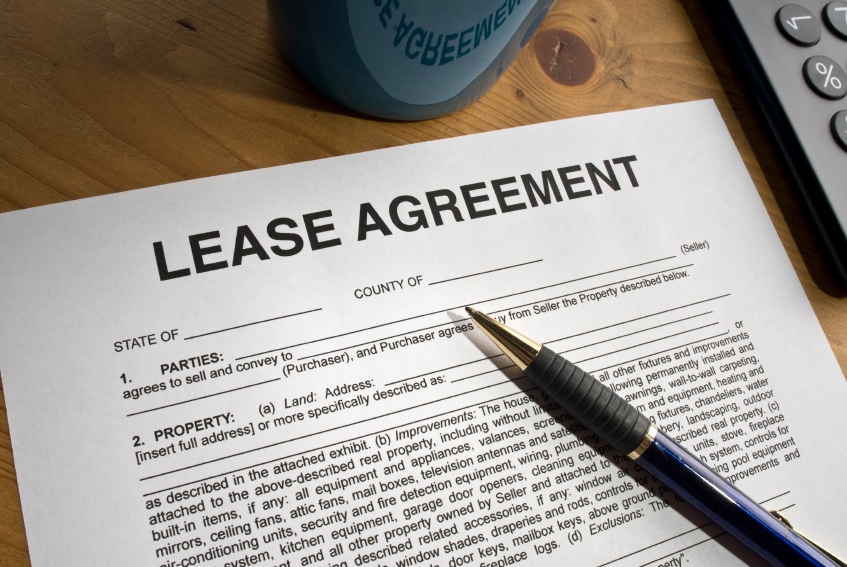
Adding A Roommate, Losing A Garage
Adding A Roommate, Losing A Garage
I have been in my current (rent-controlled) two-unit apartment here in San Francisco since September 2008. The property manager states they will not process nor approve any application until they have received a positive verbal or written referral from the prior landlord/property manager/roommate.
I am not aware of any city, state or federal law supporting this requirement and understand that a property manager/landlord may only use personal information from an application to rent to confirm proof of income and credit worthiness, and the approval must be completed within a reasonable period of time (as far as I can tell, five business days).
This requirement by the property manager nearly sabotaged my new roommate when, after almost two weeks, they refused to allow him to move in because his prior landlord/roommate apparently wasn’t returning their calls.
My second question: the property manager has also refused to allow me to remain the master tenant on the lease, but instead insists that the new roommate be a co-tenant despite the fact that I have never been late paying the rent (with and without a roommate) since I moved in.
I would like to remain the master tenant (and the new roommate was aware of this wish and agreed to it prior to applying), but the property manager created a “Modification to Lease” placing my new roommate on the lease as a co-tenant.
Under the lease, I am entitled to park two motorcycles and a vehicle in the garage, and since I moved in, have neatly stored items in the storage area (I essentially have sole access to the garage since the tenant downstairs does not drive). After the new roommate moved in, the property manager sent me a letter stating that we must remove all items in the garage despite knowing of the storage matter and no one (that we know of) complained about our storage. I checked the lease and it states, “storage in unit only.”
Are the first two issues lawful, and do I have to move our things despite their constructive notice that I/we have always stored things in the garage/storage room?
All of your issues involve gray (unclear) areas of the law. By that, I mean that your issues, if litigated, will be subject to administrative or judicial interpretation. All of your issues are interesting. And you should understand that when a lawyer says your case is “interesting” that translates as “expensive.”
Can the property manager refuse to process a roommate application without a reference from a former landlord? Rent Board Rules and Regulations § 6.15A and B govern the process by which a roommate can be added to a tenancy. Assuming you have a clause in your lease that allows subletting with the landlord’s written consent (most leases do) the applicable section is 6.15B(b)(ii):
“The proposed new tenant or new subtenant, if requested by the landlord, has completed the landlord’s standard form application, or, in the event the landlord fails to provide an application or has no standard form application, the proposed new tenant or new subtenant has, upon request, provided sufficient information to allow the landlord to conduct a typical background check, including credit information, income information, references, and background information.”
I imagine that most “standard applications” ask for the name of a former landlord. Read narrowly, one could interpret the rules as only requiring the tenant to fill out the application. However, no one is going to argue that the landlord cannot, upon receiving the application, “conduct a typical background check.” There’s the rub. I would certainly argue that a new roommate should not be penalized by a former landlord’s recalcitrance in providing a reference. What if the guy is on an extended silent meditation retreat in an ashram in India? Or recently deceased? What if the new roommate doesn’t have a former landlord, having just moved out of her parents’ house?
The problem is that there is no clear answer. Would it be worth a shot to litigate this at the Rent Board? Perhaps, but in your case you would not have standing to do so because your roommate was, finally, approved.
Can the property manager insist that a new roommate become a co-tenant? Frankly, I’m surprised that they would want to. Your roommate will have all of the rent ordinance protections you now have. Simply put, the landlord cannot increase the rent to market rate if you move out.
The only advantage of being a master tenant is the ability to evict a subtenant, either with or without just cause. (See Rules and Regulations §6.15C.) If your roommate becomes a co-tenant you would not be able to evict her at all because co-tenants cannot evict each other. Personally, I don’t see a problem because I don’t think anyone should want to be a landlord.
That said, you may not have to sign a new lease with the modification as proposed by the property manager, but the law is not completely clear. Rent Ordinance §37.9(a)(5) provides that a tenant can be evicted if he or she refuses to sign a new lease “under such terms which are materially the same as in the previous agreement.” Your roommate is a party to the lease not a term in the lease, yet the modification itself is, arguably, a material new term.
Finally, the storage issue is also subject to interpretation. Your lease specifically requires “storage in unit only.” Did the property manager “waive” that requirement? Waiver is the intentional relinquishment of a known right. That the property managers knew about your storage in the garage is not necessarily enough to prove their intent.
I think the best strategy is to remove the items from the garage. Then consider filing a petition for decrease in services at the Rent Board. Bear in mind that you will have to show that losing the storage has some monetary value; that losing the storage is a substantial decrease; and that the property managers intended to give up their right to demand that you remove the items. It’s a close call.
When presented with cases like this, I ask my clients to think long and hard before they risk their tenancies based upon unsettled issues in the law. For example, if you were my client, I may have advised you not to allow your new roommate to move in had the property manager refused to accept her based on their inability to contact the old landlord.
Defending evictions is expensive, time consuming and stressful. Often it’s better to make a business decision. Ask yourself, “Is my tenancy going to be worth it after I amortize these costs?”

 The Costa Hawkins Rent Housing Act, a bi-partisan law enacted in 1995 by the band of pandering griftocrats we call our state legislators, that eviscerated local rent control.
The Costa Hawkins Rent Housing Act, a bi-partisan law enacted in 1995 by the band of pandering griftocrats we call our state legislators, that eviscerated local rent control.




